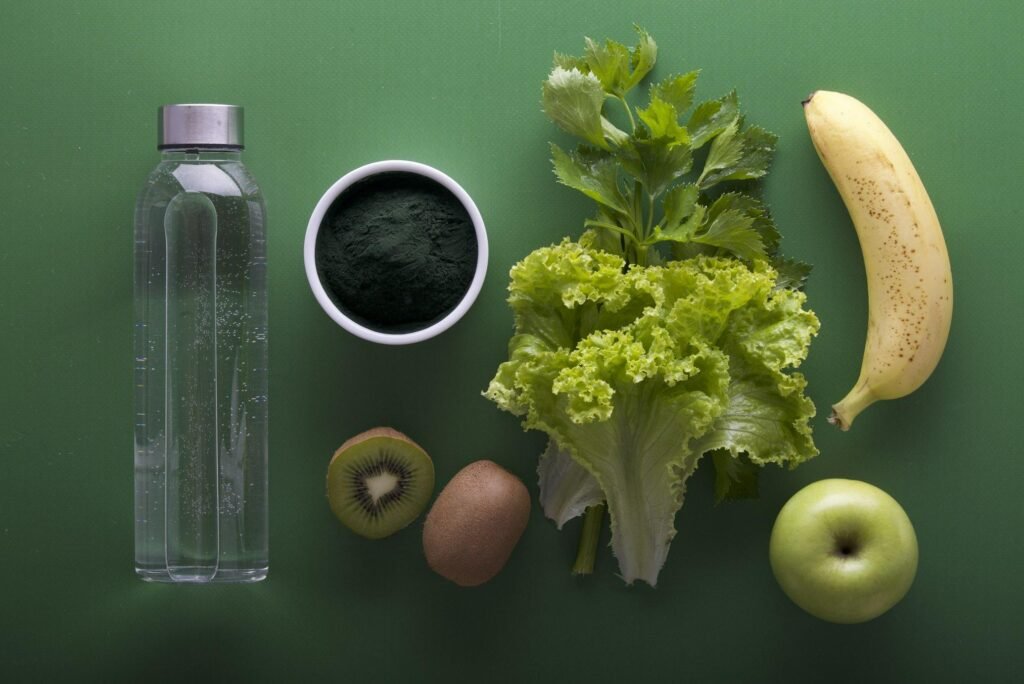In recent years, the conversation around wellness has shifted, with an increasing number of experts and enthusiasts alike recognizing the critical role of gut health in our overall well-being. From digestion to immunity, and even mental health, the gut has emerged as a powerful player in the symphony of our body’s functions. But what exactly does “gut health” mean, and why is it being hailed as the cornerstone of holistic wellness? In this article, we will delve into the intricate relationship between our gut microbiome and various aspects of our health. We’ll explore the science behind gut health, practical tips for nurturing it, and the potential benefits of prioritizing this often-overlooked aspect of our health. Join us as we uncover how a healthy gut can lead to a happier, healthier you.
Table of Contents
- Understanding the Gut Microbiome and Its Impact on Health
- Essential Nutrients for a Balanced Gut Ecosystem
- Practical Tips for Maintaining Gut Health Daily
- The Connection Between Gut Health and Mental Wellbeing
- Closing Remarks
Understanding the Gut Microbiome and Its Impact on Health
The gut microbiome, often referred to as the body’s “second genome,” consists of trillions of microorganisms living in our intestines. These microbes play a crucial role in digestion, nutrient absorption, and immune system functions. They help break down complex carbohydrates and synthesize essential vitamins, contributing to overall health and well-being. However, an imbalance in these microbial populations, caused by factors such as poor diet, stress, or antibiotic use, can lead to various health issues including gastrointestinal disorders, obesity, and even mental health problems.
Maintaining a healthy gut microbiome is essential for optimal bodily function and can be supported through dietary choices. Incorporating a variety of foods can help nurture these beneficial bacteria:
- Fiber-rich foods: Whole grains, fruits, and vegetables.
- Fermented foods: Yogurt, kefir, sauerkraut, and kimchi.
- Polyphenol-rich foods: Berries, nuts, and green tea.
Furthermore, regular physical activity and hydration are vital for promoting microbial diversity. Research continually emphasizes the significance of a balanced microbiome and its direct relationship with our physical and mental health, underscoring the notion that gut health is indeed a cornerstone of overall wellness.
Essential Nutrients for a Balanced Gut Ecosystem
A well-functioning gut ecosystem relies on a variety of essential nutrients that promote a balanced microbiome. Among these, probiotics and prebiotics stand out as crucial components. Probiotics are beneficial bacteria found in fermented foods such as yogurt, kefir, and sauerkraut, which help to maintain the healthy balance of gut flora. In contrast, prebiotics—found in foods like bananas, garlic, and onions—serve as food for these probiotics, ensuring they thrive and multiply. Incorporating both into your diet can vastly improve digestion and immunity, keeping harmful bacteria at bay.
Additionally, fiber plays a vital role in supporting gut health. It aids in regular bowel movements and fosters a conducive environment for beneficial bacteria. It’s advisable to include a diverse range of fiber-rich foods, such as whole grains, legumes, nuts, and seeds, to promote a varied gut flora. Moreover, essential fatty acids, particularly omega-3s from sources like fatty fish and flaxseeds, help to reduce inflammation in the gut and contribute to overall digestive wellness. By ensuring a balanced intake of these nutrients, you can cultivate a resilient gut ecosystem that supports your overall health.
Practical Tips for Maintaining Gut Health Daily
To nurture your gut health every day, incorporate a variety of fiber-rich foods into your meals, as they provide the essential nutrients that support beneficial bacteria. These foods include:
- Fruits and Vegetables: Berries, apples, broccoli, and carrots.
- Whole Grains: Quinoa, oats, and brown rice.
- Legumes: Lentils, beans, and peas.
In addition to a balanced diet, staying hydrated is vital. Drinking enough water helps maintain the mucosal lining of the intestines and supports digestion. Consider establishing a hydration routine and aim for at least 8 cups of water daily. Also, prioritize fermented foods rich in probiotics, such as:
- Yogurt: Look for live cultures.
- Kefir: A fermented milk drink packed with nutrients.
- Kombucha: A refreshing fermented tea.
Here’s a quick reference table to help you identify gut-friendly foods:
| Food Type | Examples | Benefits |
|---|---|---|
| Fruits | Apples, Bananas, Berries | High in fiber and antioxidants |
| Vegetables | Spinach, Broccoli, Carrots | Rich in vitamins and minerals |
| Whole Grains | Oats, Barley, Brown Rice | Supports digestion and heart health |
| Fermented Foods | Yogurt, Sauerkraut, Kefir | Enhances gut flora and digestion |
The Connection Between Gut Health and Mental Wellbeing
The intricate relationship between the gut and the brain has garnered increasing interest in recent years, revealing that our digestive system plays a pivotal role in influencing our mood and mental health. This connection is often referred to as the “gut-brain axis,” which highlights how the gut microbiome can impact neurotransmitter production, inflammation levels, and even stress responses. Studies have shown that healthy gut bacteria can promote the production of mood-regulating chemicals such as serotonin, often dubbed the “feel-good hormone.” Disruptions in gut health can lead to a variety of mental health issues, including anxiety and depression.
Maintaining a balanced gut microbiome can be beneficial in enhancing psychological resilience and emotional well-being. Consider these key factors for promoting gut health:
- Diverse Diet: Consuming a range of fiber-rich foods can nurture a variety of beneficial gut bacteria.
- Probiotics: Incorporating fermented foods like yogurt and kimchi may help introduce healthy bacteria.
- Regular Exercise: Physical activity is known to boost gut health and improve mood-regulating hormones.
- Stress Management: Practices like meditation or yoga can reduce stress and positively affect gut function.
To illustrate the impact of gut health on mental well-being, consider the following table:
| S factor | Gut Health Impact | Mental Wellness Outcome |
|---|---|---|
| Microbiome Diversity | Promotes nutrient absorption | Improved mood and cognitive function |
| Inflammation Levels | Reduces systemic inflammation | Lower risk of anxiety and depression |
| Nutritional Intake | Supports neurotransmitter production | Enhanced psychological resilience |
Closing Remarks
prioritizing gut health is not just a trend; it’s a vital component of overall wellness that deserves our attention. As we’ve explored throughout this article, the gut microbiome plays an essential role in various bodily functions, from digestion and metabolism to immunity and mental health. By making conscious dietary choices, incorporating prebiotics and probiotics, and adopting a balanced lifestyle, we can cultivate a thriving gut environment that supports our overall well-being.
As you embark on your journey to better gut health, remember that small changes can lead to significant improvements. Whether it’s experimenting with new foods, staying active, or managing stress levels, every step you take can contribute to a healthier you.
So, let’s embrace the science of gut health and consider it a foundational pillar of our wellness journey. Here’s to a happier, healthier life with a gut that’s ready to thrive! Thank you for joining us in this exploration, and we hope you’ve found valuable insights to inspire your path to optimal health.





